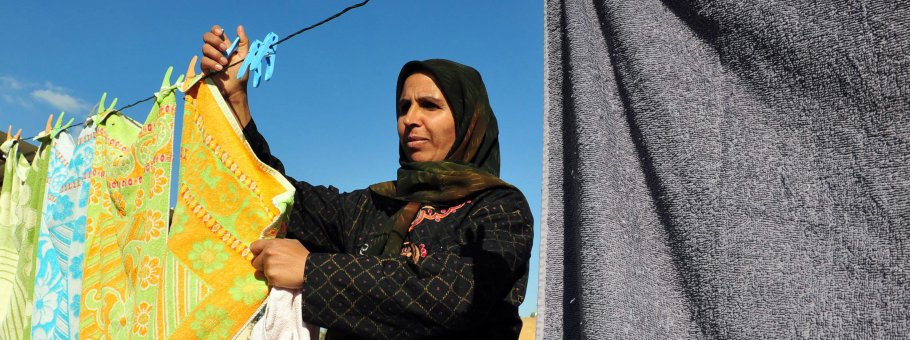-
Strengthening Women’s Legal Empowerment
Strengthening Women’s Legal Empowerment
Strengthening Women’s Legal Empowerment: Building an evidence base and mobilizing change makers

Project Brief
Through a strengthened legal protection framework, violence against women decreases and women regularly receive their inheritance and property rights.
Overview
In much of the West Asia-North Africa region, the justice system does not afford equal opportunity and protection to large segments of the female population. Such exclusion has proven negative implications for economic growth, livelihoods, social equity and stability. To examine these dynamics at a country level, in 2014, the WANA Institute conducted a qualitative baseline mapping of legal empowerment in Jordan. A key observation was that women are exposed to speci c forms of rights violations, and that these cases disproportionately fall within the jurisdiction of the Shari’ah courts: women report 82.6% of civil status and documentation cases, 100% of alimony and custody cases and 86.6% of divorce cases.
At the same time, women face particular difficulties accessing justice at the Shari’ah courts: they account for 55.6% of cases not referred to court and 64.4% of cases referred to court without representation. These obstacles involve a complex combination of legislative, economic and socio-cultural factors. In particular, inadequacies in the legal protection framework are reinforced by judges following personal, often highly conservative, interpretations of Islamic Shari’ah, as opposed to statutory law. A further issue is that religion and culture fuse in complex and dynamic ways, such as where discriminatory customs are presented as being condoned by or required under Islam. Rights to inheritance, restrictions on early marriage and protections form domestic violence, for example, while speci cally provided for in law, are routinely violated in practice and justi ed from a religious standpoint.
In response, the WANA Institute undertook scholarly research on how Islamic jurisprudence could be used as a tool to better protect and uphold women’s rights. The research identi ed violence against women, parental rights and property-inheritance rights as three areas where there was wide scope to reform legislation, improve court outcomes and modify customary practices on the basis of existing practice having no grounding in, or being inconsistent with Islamic provisions. To this end, the WANA Institute, in partnership with the Jordanian National Commission for Women, Justice Centre for Legal Aid, Mizan and Sisterhood is a Global Initiative, elaborated a project to improve women’s protection and access to just outcomes based on scholarly interpretations of Islamic jurisprudence. The theory of change is that ‘proper’ Islamic behavior is a more effective motivator of behavioral change in duty bearers than appealing to statutory law or international rights doctrines.
Activities
- 5 white papers based on scholarly interpretations of Islamic jurisprudence.
- 6 high level meetings with policy-makers and senior regional religious scholars
- Training and mentoring of 2 Jordanian Islamic scholars in ijtihad
- Module development and baseline data collection
- 520 awareness sessions (15,360 women and 875 Imam beneficiaries)
- Impact evaluation
- Module development and baseline data collection
- Training sessions (40x lawyers and x6 session,
- 50x judges and x1 session
- Impact evaluation
